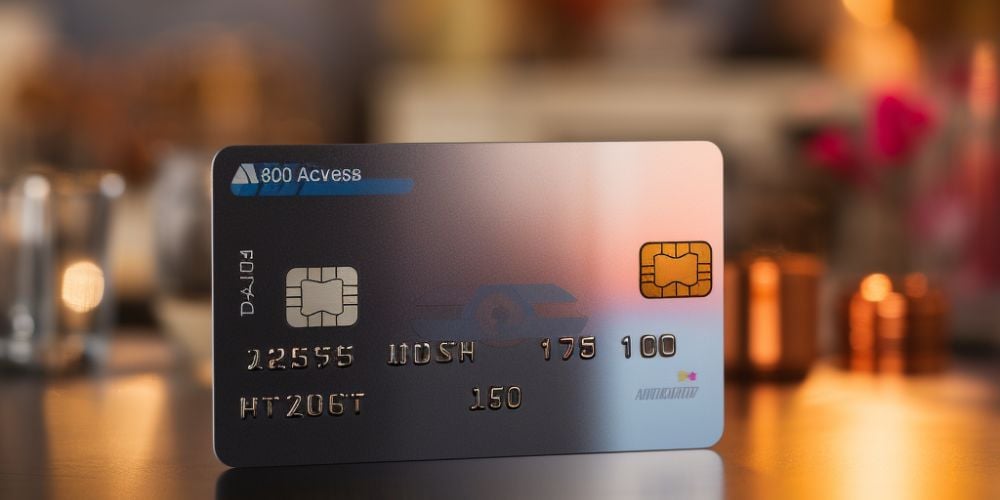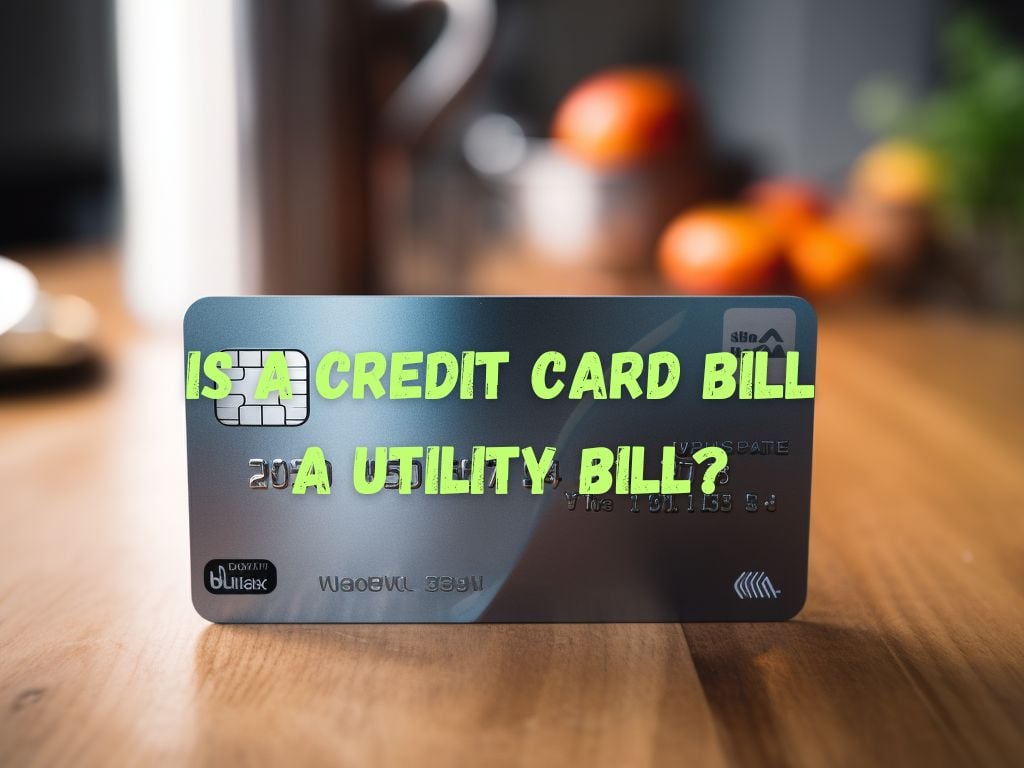Credit card bills and utility bills are two terms often used when discussing personal finances and monthly expenses.
While they both involve bills and payments, they serve different purposes and play different roles in our daily lives.
So, is credit card bill a utility bill?
In this article, we will delve into the differences between credit card bills and utility bills, debunking common misconceptions and shedding light on why credit card bills are not considered utility bills.
Characteristics of Credit Card Bills
Credit card bills have distinctive characteristics that differentiate them from utility bills.
First and foremost, credit card bills are based on an individual’s spending habits and financial responsibility. They reflect the spending activity, credit limit utilization, and payment behavior of the cardholder.
Additionally, credit card bills highlight the minimum payment required to avoid late fees or penalties, as well as any outstanding balances or interest charges incurred.
Credit card bills also provide a detailed breakdown of purchases made during the billing cycle, often categorizing them into different merchant types or expense categories. This breakdown helps cardholders analyze their spending patterns, identify areas of overspending, and make informed financial decisions.
They also serves as valuable tools for budgeting and tracking expenses.

Characteristics of Utility Bills
Utility bills, on the other hand, are focused on fixed expenses related to necessary services provided by utility companies. They reflect consumption-based charges for services like electricity, water, and gas, which are essential for daily living.
Utility bills generally do not provide detailed information about specific usage or spending patterns. Instead, they present a summary of the charges alongside account information and payment due dates.
Utility bills are typically issued monthly or based on specific billing cycles determined by the utility company. They aim to accurately represent the services consumed and ensure that customers are billed accordingly.
These bills allow utility companies to maintain and manage their infrastructure, provide uninterrupted services, and ensure fair consumption evaluation for their customers.
Is Credit Card Bill a Utility Bill? The Truth
No, a credit card bill is not considered a utility bill. Utility bills typically refer to invoices or statements for services such as electricity, water, gas, or internet that are essential for daily living.
A credit card bill, on the other hand, represents the amount owed to the credit card company for purchases made using the credit card. While both utility bills and credit card bills involve payment for services or goods, they are different in nature and purpose.
Utility bills are related to the provision of essential utilities, whereas credit card bills are related to credit card usage and repayment.
Difference Between Credit Card Bills and Utility Bills
Understanding the difference between credit card bills and utility bills is essential in managing personal finances effectively. Let’s explore this distinction in more detail:
Definition of Credit Card Bill
A credit card bill is a monthly statement sent by credit card companies to cardholders, summarizing their purchases, outstanding balance, minimum payment due, and other relevant details.
It reflects the amount owed by the cardholder for the goods and services they have consumed within a specific billing period.
Credit card bills are crucial for maintaining good credit standing and are used to track and manage expenses associated with credit card usage.
Definition of Utility Bill
Utility bills, on the other hand, pertain to charges for essential services used in a household. These bills typically encompass electricity, water, gas, and sometimes even cable or internet services.
Utility bills are issued by utility companies and are associated with a specific address. They can be use for proving residence, and reflect an individual’s or a family’s usage of essential utilities.
Proving Residence: Credit Card Bills vs Utility Bills
One of the key differences between credit card bills and utility bills lies in their ability to serve as proof of residence.
Utility bills are widely accepted as valid evidence of residence, as they tie individuals or families to a specific address. These bills are essential for establishing creditworthiness, obtaining important services, and even fulfilling legal requirements.
On the other hand, credit card bills do not possess the same weight as proof of residence, primarily because they indicate financial responsibility rather than reflecting physical presence at a specific location.
While credit card bills and utility bills share similarities in their invoicing and payment nature, they differ significantly in their purpose, characteristics, and acceptance as proof of residence.
Understanding these differences is crucial for financial management and establishing one’s residential status.

Why Credit Card Bills are Not Considered Utility Bills
Despite involving monthly payments and residential addresses, credit card bills are not considered utility bills for several reasons.
One primary reason is the lack of proof of residence. Utility bills, with their association to fixed services consumed at a specific address, serve as reliable evidence of a person’s residential status.
Moreover, credit card bills possess different characteristics compared to utility bills.
While credit card bills are based on the individual’s spending habits and financial responsibility, utility bills are fixed expenses related to the necessary services provided by utility companies.
Accepted Forms of Proof for Residence
When it comes to proving one’s residence, there are various documents that are commonly accepted. These documents act as evidence, allowing individuals to establish their connection to a particular address.
While credit card bills may not be accepted as proof of residence, there are other documents that fulfill this purpose.
Accepted forms of proof for residence include government-issued ID cards, rental agreements or lease agreements, mortgage statements, and utility bills.
Utility bills play a crucial role in proving residence, as they demonstrate that an individual or family resides at a specific location and utilizes essential services provided by utility companies.
Paying Utility Bills with a Credit Card
Although credit card bills are not considered utility bills, it is possible to use a credit card to pay utility bills.
In recent years, utility companies have started accepting credit cards as a form of payment to offer their customers greater convenience.
However, it is necessary to note that when paying utility bills with a credit card, there may be convenience fees attached to the transaction. These fees vary depending on the utility company and the credit card used.
Despite the potential convenience fees, paying utility bills with a credit card can offer benefits.
Many credit cards provide rewards programs, allowing users to earn cashback, points, or miles for every dollar spent.
By using a credit card to pay utility bills, individuals can accumulate rewards and potentially offset these convenience fees.
Frequently Asked Questions
Q: What are considered utility bills?
Utility bills primarily include charges for essential services such as electricity, water, gas, and sometimes cable or internet. These bills establish an individual’s residence as they tie the person to a specific address.
Q: Can a phone bill be used as a utility bill?
Phone bills generally don’t fall under the category of utility bills. They are more closely related to communication expenses rather than services that are essential for a residence. Thus, phone bills are not typically accepted as proof of residence.
Q: Is a bank statement a utility bill?
No, a bank statement is not considered a utility bill. Bank statements provide a record of financial transactions, including deposits, withdrawals, and account balances.
While they can be used as evidence of financial standing, they do not establish proof of residence.

Conclusion
Clearing up misconceptions between credit card bills and utility bills is crucial for gaining a better understanding of personal finances.
Credit card bills and utility bills serve distinct purposes and play different roles in our lives. While credit card bills reflect our spending and financial responsibility, utility bills establish proof of residence and reflect our usage of essential services.
Credit cards can be used to pay utility bills, offering convenience and potentially earning rewards. However, it is important to be mindful of any associated convenience fees.
By understanding the differences between these two types of bills, individuals can make informed financial decisions and manage their expenses more effectively.
Remember, while credit card bills contribute to your credit history and can impact your financial standing, utility bills play a significant role in establishing residency and accessing various services.
By recognizing the distinctions, you can better navigate your financial landscape and build a solid foundation for your future.


 Tags:
Tags:










